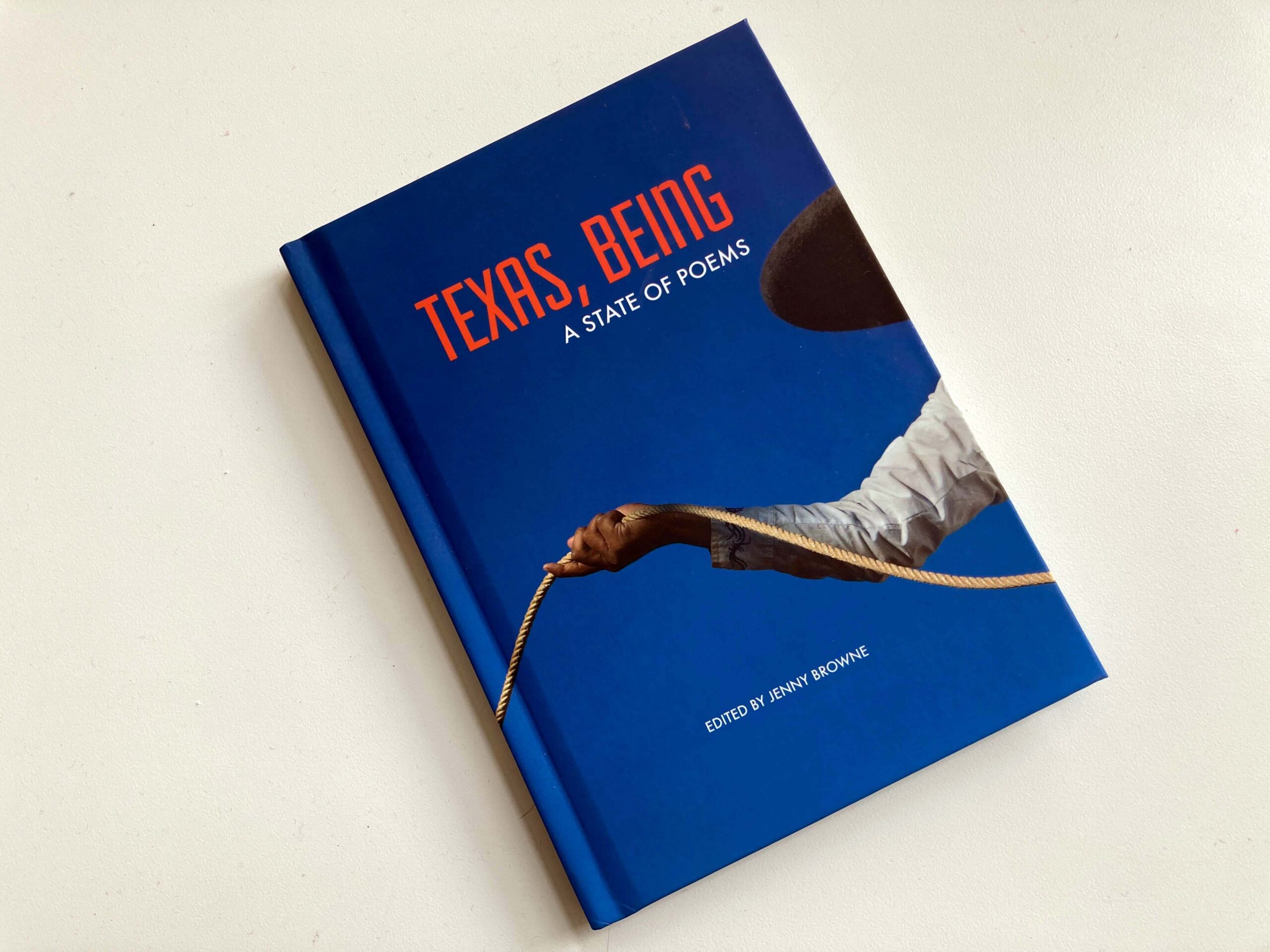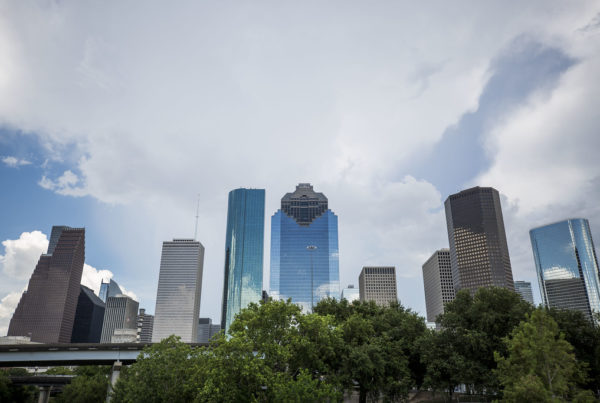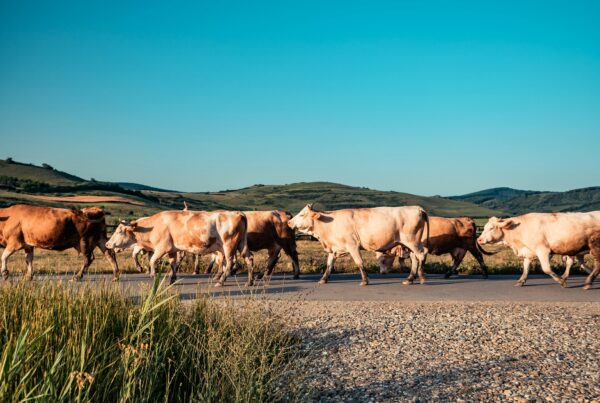Ever since the notion of Texas first came into being, people have strained to describe it in words.
But corralling such an enormous space can be an impossible task. So a new book of poetry called “Texas, Being: A State of Poems” doesn’t attempt to sum up all things Texan.
It does take the reader on a journey, though, through Texas’ beauty, brutality and nuance. The 47 poems were selected and assembled by Jenny Browne, a poet and professor of English at Trinity University in San Antonio whose work is also in the book.
Browne, who was was named the poet laureate of San Antonio in 2016 and Texas poet laureate in 2017, spoke to the Texas Standard about putting the collection together.
This transcript has been edited lightly for clarity:
Texas Standard: Congratulations on this wonderful, wonderful collection.
Jenny Browne: Yeah, I’m holding it in my hands. And, you know, it was sort of an idea for a long time. And it is, if you haven’t seen it, it’s a beautiful book. It’s raining outside, but it’s got a bright blue sky on it, a big sky. So yeah, no, I’m thrilled. And I’m thrilled with the the poets we got together here.
Well, I’m intrigued by the fact that you called this an idea that had been lingering in thought for a while. I understand you weren’t born in Texas.
You know, I wasn’t. My dad was in the military, though, and so I actually took my first steps at Fort Sam Houston when he was stationed there. So metaphorically, it’s always been a place in my imagination. And it took me a while, but I found my way back here in my 20s and have been here ever since.
One of the reasons I’m asking here is because it’s my understanding that when you were thinking about a title for this book, you were actually inspired by one of the poems that you wrote when you returned to Texas.
I was, and it was both a sort of spiritual inspiration and kind of a practical realization in that I had driven back this way from the Midwest, where my parents still lived at the time, and I was, “Okay. I’m home. I’m in Texas.” And I still had a long way to go after I crossed the state line.
So the scale of the place, yeah. It was one of the first poems I wrote when I had moved here, and it was sort of an attempt to try to locate myself, I think, in the larger sense.
Sense of place. And it’s called “Texas, Being.” Do you have it handy? Would you be open to reading it to us?
Well, sure, I’d be happy to.
Texas, Being
where blind catfish cruise
limestone caverns
from deeper we drink
while a man sweets tea
with his knife stirring
all the way down
border fires
making breathing a geography
mountain cedar
floating pollen fevers
bones in the road
sun-bleached
possum grin just missing
the curb where she
like all the modern girls
paused to consider
her inventory of elsewhere
because we can
drive ten hours and some
how still be here
That was really beautiful. So I can understand why this idea for a collection would linger. What did you do to put together this collection? I mean, there are, some great poets in Texas, and some great poetry has been written about the Lone Star State. How did you go about it?
Well, you know, there has. I think what I got interested in was thinking about, you know, I have one sort of experience of encountering this place, living in the body that I live in – being a white woman who came here of my own accord and has come to love it despite its contradictions.
But what are some of the other stories? You know, people who are born and raised here and kind of couldn’t wait to get out, or people who wrote about this place a long time ago.
And so I did a mix of things. I did a lot of research. I mean, we had hoped to find some older poems, maybe in the public domain. And I’ll be quite honest, I found some – some of them are terrible. So honestly, it kind of felt like a scavenger hunt.
And one of the things I like the best about the book is the way that a poem by someone like Borges can be next to a poem by someone who came here for graduate school, and they can be in conversation with each other. And so I think it’s full of contradictions and perhaps juxtapositions, but I think that feels true to what I understand of living here.
Well, let’s take on a challenging one. Is there a poem here that you might point to as an example of some of these contradictions or some of these more difficult-to-grasp aspects of Texas? And when I say more difficult to grasp, I mean for people who have been fed a diet of all the barbecue and boots and all of that.
One that occurs to me is by a poet named Shin Yu Pai, who is a poet who lives in Seattle. And I remember finding this poem and asking her about it. And she said, “I never really felt like Texas welcomed me,” though she was from Texas.
And her poem, actually, was written in response to, I believe it was an article in the New York Times about sort of a day without immigrants. There was this sort of a protest or this idea, like a story, like, what would the world actually look like without the work that immigrants do here? And so, that’s what her poem’s called. It’s called “A Day Without an Immigrant, Dallas, Texas.”
At Pearl Street station,
two brown-skinned men
in painter’s pants stand
out in a sea of white
I am just one more face
sticking out in a crowd
& it is my privilege
that prevents me from
understanding why
the workers want to know
how to buy one-way trips
the automated machine
sells only one roundtrip fee,
back to where you came from
he isn’t asking me for change
says it clear enough so that
there can be no mistake
Sí. Yo sé.
But a dollar fifty is a lot of money.
So you have an Asian woman who grew up here and left and has never really felt at home kind of narrating an experience of someone else, who also feels like a stranger here. And it does what I think poems really do, is it focuses on this one little detail to say something I think larger about an experience of the world.
But I think what this book does is something even bigger, too. It’s the juxtaposition of some of these different visions of Texas, I think, that is perhaps, taken together, most striking.
Did you find, as you go through these poems, that there’s a particular thread – not just the geography, clearly, but something else that sort of ties together these ideas?
I used the word recently, this sort of parallel approach of celebration and interrogation. And for me, Texas is bold, and there are poems about these non-human creatures that live here and these incredibly expansive physical places.
And at the same time, I think that the lyric poem is sort of the voice of the individual human experience in some way and of the emotions that come with that.
When I was talking to and approaching, I also solicited poets I admired and I said, you know, I don’t want this book to be – not that I don’t love tacos and Willie Nelson and the rodeo; I love all of those things, but I have a complicated love for this place – and I said, I’m looking for poems that somehow have an element of being a love letter, but also perhaps a more complex one than you might get.
It’s this sort of beauty and brutality, or maybe a mixture of the fun and the frustration? And without the other, you don’t have the Texas that we know, in a sense.
Yeah, absolutely. I mean, one of the oldest poems is a funny one. It was sold as a book at Neiman Marcus in 1939. It’s by someone named Townsend Miller. And I just kind of came across it in the archives, but the last line ends, “the tongue staggers / to speak it for the size or where to take it.”
And you can’t talk about all of Texas in any singular way that holds anything for me. I mean, there’s just too much, too many different languages and voices and threads. And so I liked that, “the tongue staggers,” to kind of find the language for it.
But these poets have found, I think, incredibly inspiring and meaningful ways of speaking to what is both, as you said, beautiful and and often brutal about about this independent, anachronistic place.














